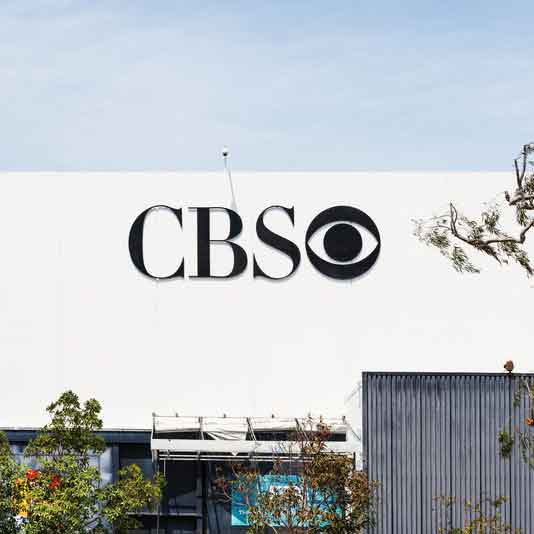President Donald Trump is demanding the cancellation of CBS’s long-standing news program, “60 Minutes,” alleging election interference and fraud. Trump posted on his Truth Social platform that he wanted the show’s producers removed and CBS’s license revoked. The call follows Trump’s ongoing lawsuit against CBS, seeking $10 billion in damages over the network’s handling of an interview with Former Vice President Kamala Harris.
Trump argues that “60 Minutes” manipulated Harris’ interview to present her positively, which he believes swayed the election. His claims arise from the disparity between the preview and the final broadcast of Harris’ remarks concerning Israel. Trump and his supporters contend that the edited version masked Harris’ difficulty articulating a definitive stance. CBS has refuted the allegations, maintaining that its editing process aligns with standard journalistic practices.
Reacting to Trump’s lawsuit, CBS made public the unaltered transcript of Harris’ interview, insisting that it dispels claims of the broadcast being “manipulated or dishonest.” The network stressed that editing interviews for clarity and time constraints is a routine journalistic procedure. Despite CBS’s defense, its parent company, Paramount Global, is reportedly in settlement talks while seeking regulatory approval for an $8 billion merger with Skydance Media.
FCC Chairman Brendan Carr, a Trump ally, has supported Trump’s allegations and demanded that CBS share complete transcripts and interview footage, which CBS did. In a Fox News interview, Carr stated that there was clear evidence that “The policy says you can’t swap answers out to make it look like somebody said something entirely different.” The FCC’s decision to investigate CBS has been criticized by some, including Democratic Commissioner Anna M. Gomez, who labeled the investigation as politically motivated.
Trump has also extended his media onslaught, amplifying unfounded claims that the U.S. Agency for International Development (USAID) unlawfully channeled money to news outlets, including Politico. Trump and his allies allege that USAID gave $8 million in illegal payments, a claim Politico denies.
Records indicate that only two USAID payments totaling less than $43,000 were made to Politico for subscription services in 2023 and 2024. Politico insists that it has never received government funding or subsidies.
The controversy centers on USAID’s subscription to Politico Pro, with Trump spokesperson Karoline Leavitt declaring its termination. According to a Washington Post report, these payments represent typical government subscriptions to Politico’s specialized policy news service rather than improper funding. The situation highlights a clash between Trump’s characterization and the standard nature of government media subscriptions.
The Trump administration’s media strategy manifested through multiple channels, with the FCC, under Carr’s leadership, serving as a key instrument. The pattern shows selective regulatory scrutiny, where CBS and Politico faced investigations alongside ABC and NBC, while Fox News remained notably exempt. This approach combined direct regulatory pressure through FCC investigations and indirect pressure through legal channels, representing a systematic effort to influence significant media organizations.
Trump’s allies have not spared public broadcasting. FCC investigations into NPR and PBS are underway, suggesting that their corporate sponsorship messages may resemble commercials, potentially risking federal funding. Representative Marjorie Taylor Greene has requested that public broadcasting executives testify before Congress regarding allegations of bias.
Meanwhile, Trump is continuing legal action against Gannett’s Des Moines Register, accusing it of inaccurate election polling, and the Pulitzer Prize committee over awards given for reporting on Trump’s ties to Russia. Previous settlements have included payments to Trump from media companies such as ABC News and Meta.
Paramount executives, grappling with regulatory obstacles in their Skydance Media merger, appear willing to settle Trump’s lawsuit. However, CBS News leadership, including “60 Minutes” Executive Producer Bill Owens and network President Wendy McMahon, has resisted issuing an apology or making concessions.
Amid these disputes, the administration also altered press access at the Pentagon, favoring outlets like the New York Post and Breitbart over Politico, NPR, The New York Times, and NBC News. No credentials were revoked, but the move restricts these organizations’ direct access to military briefings.
Trump’s crackdown on media extends beyond lawsuits and regulatory pressure, with broader implications for press freedom. Jameel Jaffer, executive director of the Knight First Amendment Institute, noted, “Each settlement weakens the democratic freedoms on which these media organizations depend… They create precedents… that will shape the way that judges and the public think about press freedom and its limits.”
The ongoing feud between Trump and CBS is a microcosm of a more significant conflict between the administration and the media. With lawsuits, regulatory scrutiny, and direct pressure on news organizations, Trump’s attempts to control media narratives are intensifying.

